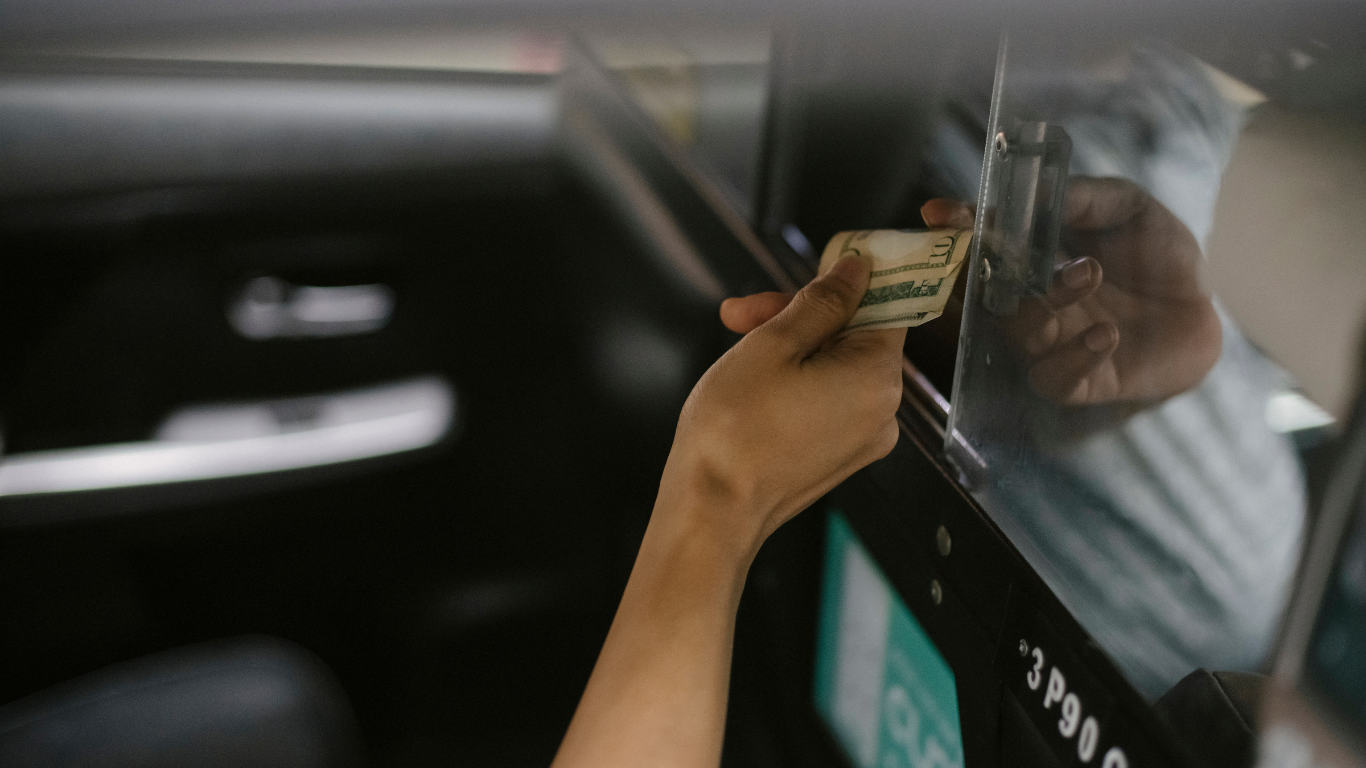
Asking About Fare
Learn how to ask a driver or conductor how much the fare is. This lesson provides simple, clear phrases to use, helping you feel more confident while using public transport. It covers a conversation about the fare and a simple greeting.
BEGINNER
Vocabulary
fare
The price charged for a person to travel on a bus, train, taxi, etc.
- How much is the fare?
- The bus fare is expensive.
- I need to pay the fare.
conductor
A person who is in charge of a train and who travels with it to collect fares and check tickets.
- I asked the conductor about the fare.
- The conductor is checking tickets.
- The conductor told me to get off the train.
Grammar Tip: Using 'How much is...?'
The phrase 'How much is...?' is a polite way to ask a question about price. It shows respect to the person you are speaking with. It's a common phrase in a public setting and shows that you are a polite and respectful person.
Common Mistakes
❌ Using 'How much fare?'
✅ The correct form is 'How much is the fare?'
In English, we use 'how much is' to ask a question about price. This is a key part of asking a clear question.
❌ Not starting with 'Excuse me.'
✅ Always start with a polite phrase like 'Excuse me' to get someone's attention.
This is a simple social cue. It shows that you are being polite and respectful when you speak to a stranger.
Notes for Learners
- Be ready to make a simple request in a formal setting.
- Practice using phrases like 'Excuse me' and 'Thank you.'
- Listen for the person's answers and respond with a simple 'Thank you.'
- Remember to give a reason for your request to show that you are being honest and respectful.
INTERMEDIATE
Vocabulary
trip
A journey to a place and back again.
- What is the fare for that trip?
- We are going on a trip to the beach.
- The trip was very long.
guide
A person who shows the way to someone.
- Thank you for your guidance.
- He is a great guide.
- She guided me to the correct platform.
Grammar Tip: Using 'What is...?'
The phrase 'What is...?' is a very polite and indirect way to ask a question. It's a great way to make a request without sounding demanding.
Common Mistakes
❌ Just saying 'Help.'
✅ Add more detail to your sentence, like 'Pardon me. I need to get to the city center. What is the fare for that trip?' This is more polite and shows respect.
Adding more information makes your speech sound more natural and engaging. It's a key part of an intermediate-level conversation.
❌ Not providing a reason.
✅ Give a more valid reason like 'I'm new here and wasn't sure.'
This shows you are an engaged student and makes the conversation more personal and practical. A good excuse shows that you are responsible.
Notes for Learners
- Be ready to make a polite request with more detail.
- Practice using a conversational tag like 'What is...?'
- Listen for more specific questions and be prepared to give a detailed answer.
- Remember to use more descriptive words like 'trip' and 'guide.'
ADVANCED
Vocabulary
ascertain
To find (something) out for certain; to make sure of.
- I was hoping to ascertain the applicable fare.
- We need to ascertain the cause of the problem.
- The police are trying to ascertain the facts.
applicable
Relevant or appropriate.
- I was hoping to ascertain the applicable fare.
- This rule is applicable to all students.
- The terms and conditions are applicable to this service.
Grammar Tip: Using the phrase 'I was hoping...'
This phrase is a formal and very polite way to begin a request. It is more sophisticated and less demanding than 'Can you...?' and is perfect for professional or more detailed conversations, especially when you are ordering a specific or unusual item.
Common Mistakes
❌ Using simple language like 'How much is the fare?'
✅ Use more descriptive and formal phrases like 'I was hoping to ascertain the applicable fare.'
Advanced English is about choosing the right tone and vocabulary. Using words like 'ascertain' and 'applicable' shows a high level of fluency and a precise understanding of the situation.
❌ Not providing a clear and specific plan.
✅ Provide a clear and specific plan, e.g., 'I will be sure to be more mindful in the future. Good luck with your examination.'
This shows you are an informed person and helps the other person understand your goals more quickly and professionally. It's a key part of advanced communication.
Notes for Learners
- Open the conversation with a formal phrase like 'Good morning.'
- Be ready to use and understand specific terms like 'ascertain,' 'applicable,' and 'clarification.'
- Acknowledge the employee's help with a phrase like 'Your assistance has been invaluable' and end the conversation professionally.
- Remember that maintaining a calm and respectful demeanor is key, even when you are frustrated.